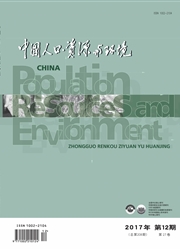

 中文摘要:
中文摘要:
2012年在多哈举行的联合国气候变化框架公约(以下简称公约)第18届缔约方会议通过了包括《京都议定书》第二承诺期在内的一揽子成果,结束了长达5年的巴厘路线图谈判授权(以下简称巴厘授权),同时也意味着德班平台的密集谈判正式开始.与巴厘授权“双轨”谈判相比,德班平台是在一个轨道上谈判,但这并不表示部分缔约方关于“双轨”的诉求、立场已经调整,而是各方持不同诉求,在德班平台谈判中寻求可以实现谈判诉求的表现形式.因此,德班平台一轨谈判,并没有简化、溶释问题,而是让问题更为集中的呈现.德班平台授权之初,发展中国家集团内部就是否授权开启德班平台谈判即存争议,而之后的磋商中,小岛国联盟与新兴经济体发展中国家在减排目标、法律形式、资金来源等一些主要关切上立场渐远,而与欧盟逐渐趋同.欧盟与小岛国联盟也成为推动德班平台谈判最积极的力量.公约长期以来呈现的南北国家集团立场分异格局,正在面临调整,新的谈判力量也在重组.各方在德班平台谈判下利益诉求的巨大差异,使得谈判进展不畅,未来各方将继续围绕“共同但有区别的责任”原则的解释、减排的模式和目标、资金来源与治理、未来协议的法律形式等方面展开博弈,寻求共识.随着社会经济发展,我国在国际气候治理进程中受关注程度也有了根本改变,我国一直所坚持的发展中国家定位,正受到来自部分发达国家和发展中国家的挑战,中国对外投资与援助的快速发展加剧了要求中国转换身份、承担更多国际义务的呼声和预期.然而,中国需要清醒的认识到我们在各个领域的实际地位包括国际气候治理进程,话语权限仍然十分有限,远未达到主导世界进程的地位.中国参与国际气候治理,不论是角色被转换还是自我调整,仍然需要韬光养晦,强健筋骨;权衡责?
 英文摘要:
英文摘要:
In 2012, the eighteenth session of the Conference of the Parties ( COP 18) of the United Nation Framework Convention on Climate Change (hereinafter referred to as the Convention) in Doha concluded a package of results which included the second commitment period of the ' Kyoto Protocol' , ending the Bali Roadmap negotiating mandate ( hereinafter referred to as the Bali mandate) after five years, and officially opening the intensive negotiations of Durban Platform. Compared to the 'dual-track' negotiation under Bali mandate, Durban Platform mandate is on ' one-track'. But it does not mean that some Parties' concerns and positions about ' dual-track' have been adjusted. They are seeking a way to realize their needs in Durban Platform. Therefore, ' onetrack' negotiation in Durhan Platform does not simplify problems, but pose problems intensively. At the beginning of Durban Platform mandate, whether to mandate the Durban Platform negotiations was controversial among developing countries, while after consultations, AOSIS and the emerging developing economies divided on main concerns, such as reduction targets, legal forms, sources of finance mechanism etc. In fact AOSIS' s position gradually converged with the EU. And EU and AOSIS become the most aggressive powers to promote the Durban Platform negotiations. The traditional north-south divergence is facing adjustment, and new powers are restructuring negotiations. The huge disparate of interest among Parties hinders progress in the Durban Platform negotiations. Parties will continue to debate and seek consensus on the interpretation of the principle of ' common but differentiated responsibilities' , emission reduction models and targets, sources of finance mechanism, the legal form of the future agreement, etc. With the social and economic development, China is receiving a growing attention in the international climate governance processes. China' s status as a developing country is being questioned by some developed and develo
 同期刊论文项目
同期刊论文项目
 同项目期刊论文
同项目期刊论文
 期刊信息
期刊信息
